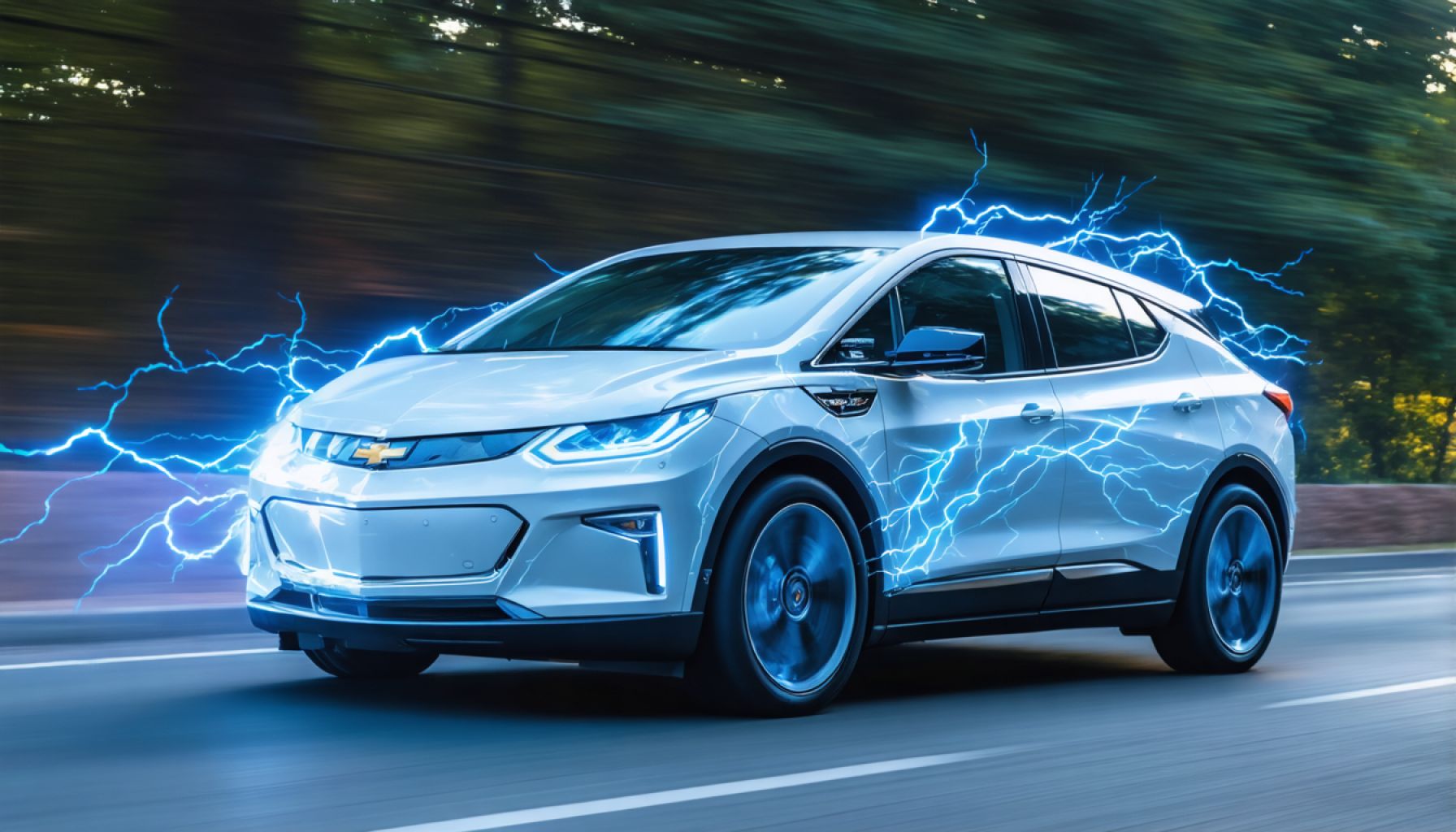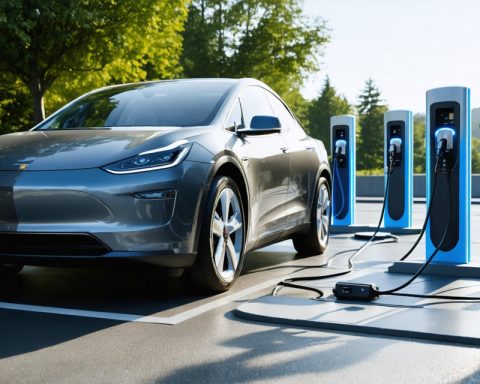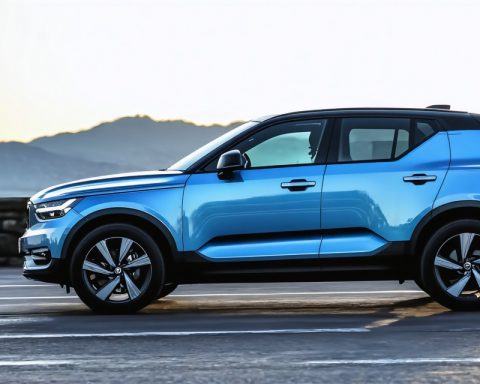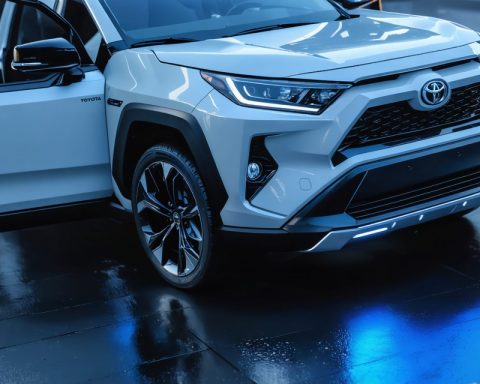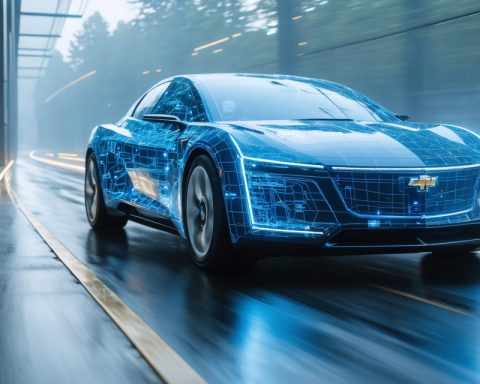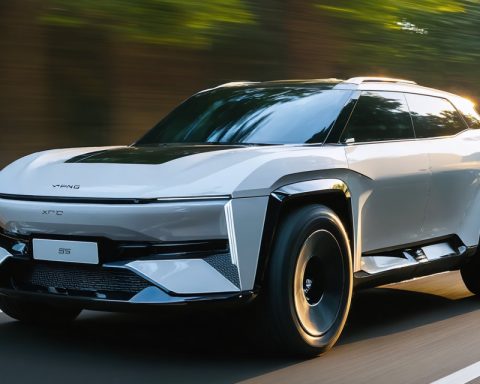- Chevrolet, a brand known for petrol-powered vehicles, is now the fastest-growing electric vehicle (EV) brand in the US.
- GM’s EV sales surged 50% in the fourth quarter, doubling its market share to 12.5%, securing the second largest EV seller spot after Tesla.
- The Chevrolet Equinox EV emerged as the eighth best-selling EV in the US by the end of 2024, thanks to its design, affordability, and 315-mile range.
- The Chevy Blazer EV offers a range of up to 312 miles, appealing to both budget-conscious and performance-oriented buyers with a starting price of $45,995.
- Chevrolet benefits from financial incentives like the $7,500 federal tax credit and 0% APR offers, enhancing affordability for average American families.
- Chevy’s strategic pricing and innovative models are steadily challenging Tesla’s dominance in the EV market.
As dawn breaks in the US automotive landscape, a quiet revolution is underway–one that doesn’t roar with the ferocity of a Ford’s Mustang Mach-E or Tesla’s audacious Cybertruck, but hums insistently with the promise of sustainable mobility. The revolutionaries? Chevrolet’s electric models–the Equinox, Blazer, and Silverado.
In a twist that could surprise some, Chevrolet, a brand many associate with American petrol-powered classics, has become the fastest-growing electric vehicle brand in the US. With vibrant sales surges and strategic pricing, Chevy is steadily eating away at Tesla’s long-held lead in the market.
This momentum isn’t just a marketing triumph; it’s backed by hard numbers and strategic foresight. Earlier this year, GM declared itself the “fastest-growing high volume EV manufacturer in the US,” with sales vaulting 50% during the fourth quarter. By doubling its market share to 12.5% in just one year, GM has secured its spot as the second-largest seller of EVs in America, surpassed only by Tesla.
Chevrolet’s pride, the Equinox EV, exemplifies this burgeoning success. By the end of 2024, it emerged as the eighth best-selling EV in the nation, an impressive feat considering it debuted just a year prior. The sleek design, affordability, and notable range of over 315 miles have made it an attractive option for new EV buyers.
And it’s not just the Equinox that’s generating excitement. The Chevy Blazer EV, a striking, futuristic SUV, opened for orders with trims and powertrain options tailored to diverse preferences. With a starting price of $45,995 and an impressive range reaching up to 312 miles, the Blazer is poised to attract both budget-conscious and performance-oriented consumers.
Financial incentives add another layer of allure to Chevy’s offerings. The $7,500 federal tax credit, still available for all Equinox and Blazer models, reduces their price significantly, positioning them as desirable choices without breaking the bank. This, coupled with financing offers like 0% APR, makes the transition to electric driving far more accessible to the average American family.
This shift in brand perception, backed by data and smart economics, is reshaping expectations. Tesla still holds a significant market share, but its dominance is waning as innovative and competitive offerings like Chevy’s gain traction. The winds of change are palpable.
For those contemplating the switch to electric, the current lineup of Chevrolet EVs offers a compelling blend of sophistication, economy, and sustainability. The message is clear–Chevy is not just riding the wave of electric transition; it’s shaping its course. Whether you’re an electric car enthusiast or a cautious newcomer, the burgeoning success of Chevy invites us all to reconsider what the future of driving can–and should–look like.
Chevrolet’s Ingenious Electric Transformation: A Closer Look at Their EV Strategy
How Chevrolet is Driving Change in the Electric Vehicle Market
In an automotive landscape dominated by powerful players, Chevrolet’s rapid transformation from a maker of petrol-powered classics to a leader in electric vehicles (EVs) is nothing short of remarkable. This evolution is not just about innovation but also strategic foresight and adaptation. Let’s delve deeper into Chevrolet’s electric vision, its market strategies, and what lies ahead for consumers considering the switch to electric mobility.
Features, Specs & Pricing of Key Chevrolet EVs
Chevrolet Equinox EV
– Range: Over 315 miles
– Starting Price: Affordably positioned with the $7,500 federal tax credit
– Design: Sleek and modern with user-friendly technology integration
– Market Performance: Has quickly risen to be the eighth best-selling EV in the nation within a year of its debut.
Chevrolet Blazer EV
– Range: Up to 312 miles
– Pricing: Starts at $45,995 before incentives
– Customization: Offers multiple trims and powertrain options catering to different consumer preferences
– Target Audience: Attracts both budget-conscious families and performance-oriented individuals
Real-World Use Cases & Market Forecasts
Chevrolet’s expanding lineup isn’t just about providing more choices; it’s about reshaping consumer perceptions. Individuals and families seeking sustainable and economically viable transport solutions are finding EVs more accessible thanks to Chevrolet’s offerings. Industry forecasts suggest the trend will continue, with Chevrolet poised to further close the gap with Tesla, leveraging its diverse model range and strategic pricing.
Controversies & Limitations
While Chevrolet has made substantial strides, it faces challenges typical within the EV market:
– Battery Supply Chain: Ensuring a steady supply of lithium and other essential materials
– Charging Infrastructure: Expanding the availability of fast charging stations nationwide
– Consumer Awareness: Continuing to educate consumers unfamiliar with EV technology and benefits
Insights & Predictions
Experts suggest Chevrolet’s trajectory in the EV market will continue on an upward slope. As battery technology advances, we can anticipate longer ranges and shorter charging times, further enhancing consumer appeal. Furthermore, the ongoing development of autonomous driving features may see future iterations of Chevrolet’s EVs integrating more advanced driver-assist technologies.
Pros & Cons Overview
Pros:
– Accessible pricing with federal tax credits incentivising purchases
– Compelling range and performance specs
– Brand reliability with a reputation for solid engineering
Cons:
– Infrastructure limitations remain, though improving
– Initial upfront cost higher compared to traditional petrol vehicles, before incentives
– Ongoing maintenance and technological upgrades needed as EV tech evolves
Actionable Recommendations for Prospective Buyers
1. Evaluate Incentives: Make full use of federal and state tax incentives to lower the effective purchase price.
2. Consider Long-term Savings: Factor in the reduced running costs of EVs, including fuel savings and lower maintenance expenses.
3. Explore Charging Solutions: Investigate home charging options to enhance convenience and reduce dependency on public charging networks.
For those interested in exploring Chevrolet’s range of electric vehicles further or gaining additional insights into the company, you can visit the official Chevrolet website.
By understanding and leveraging these insights, potential EV buyers can make informed decisions, enjoying the benefits of sustainable, electric transportation. Whether you are a seasoned EV enthusiast or a newcomer, Chevrolet’s electric offerings invite you to rethink the mobility of tomorrow.
